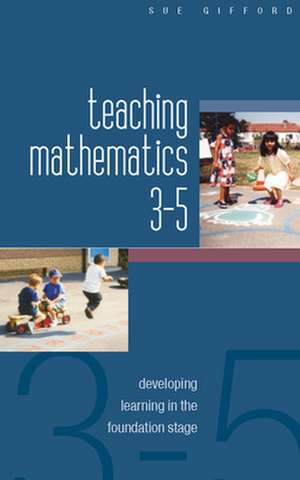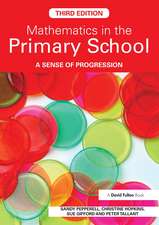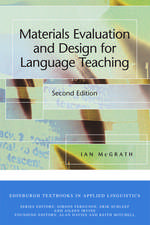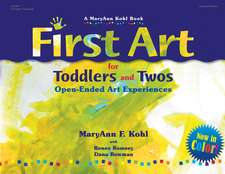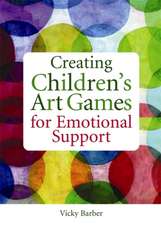Teaching Mathematics 3-5: Developing Learning in the Foundation Stage
Autor Sue Gifforden Limba Engleză Paperback – 16 aug 2005
Professor Carol Aubrey, Institute of Education, University of Warwick, UK.
- What are the most important aspects of mathematics for young children to learn?
- How do children learn mathematics?
- How can adults best ‘teach’ mathematics to children so young?
- Establishes principles for teaching mathematics to young children
- Takes into account the way children learn, including social, emotional, physical and cognitive aspects
- Helps practitioners find the middle ground between not initiating enough mathematical activity and being too directive
- Suggests principles and frameworks for planning and assessment.
Preț: 256.90 lei
Nou
Puncte Express: 385
Preț estimativ în valută:
49.16€ • 53.38$ • 41.30£
49.16€ • 53.38$ • 41.30£
Carte tipărită la comandă
Livrare economică 22 aprilie-06 mai
Preluare comenzi: 021 569.72.76
Specificații
ISBN-13: 9780335216864
ISBN-10: 0335216862
Pagini: 208
Dimensiuni: 135 x 217 x 14 mm
Greutate: 0.27 kg
Editura: McGraw Hill Education
Colecția Open University Press
Locul publicării:United Kingdom
ISBN-10: 0335216862
Pagini: 208
Dimensiuni: 135 x 217 x 14 mm
Greutate: 0.27 kg
Editura: McGraw Hill Education
Colecția Open University Press
Locul publicării:United Kingdom
Cuprins
Acknowledgements
Introduction
Between the secret garden and the hothouse: recent changes in early years mathematicsSection 1
What do we know about how young children learn mathematics? A holistic approach
1 Cognitive processes
2 Emotional processes
3 Social processes
4 Physical processes
Summary of Section 1
Section 2
Practical Pedagogy
5 Contexts for learning
6 Interactive teaching strategies
7 Teaching systems: planning and assessment
Section 3
The mathematics curriculum
8 Number
9 Shape and space
10 Measures
11 Problem solving
Conclusion
References
Index
Introduction
Between the secret garden and the hothouse: recent changes in early years mathematicsSection 1
What do we know about how young children learn mathematics? A holistic approach
1 Cognitive processes
2 Emotional processes
3 Social processes
4 Physical processes
Summary of Section 1
Section 2
Practical Pedagogy
5 Contexts for learning
6 Interactive teaching strategies
7 Teaching systems: planning and assessment
Section 3
The mathematics curriculum
8 Number
9 Shape and space
10 Measures
11 Problem solving
Conclusion
References
Index
